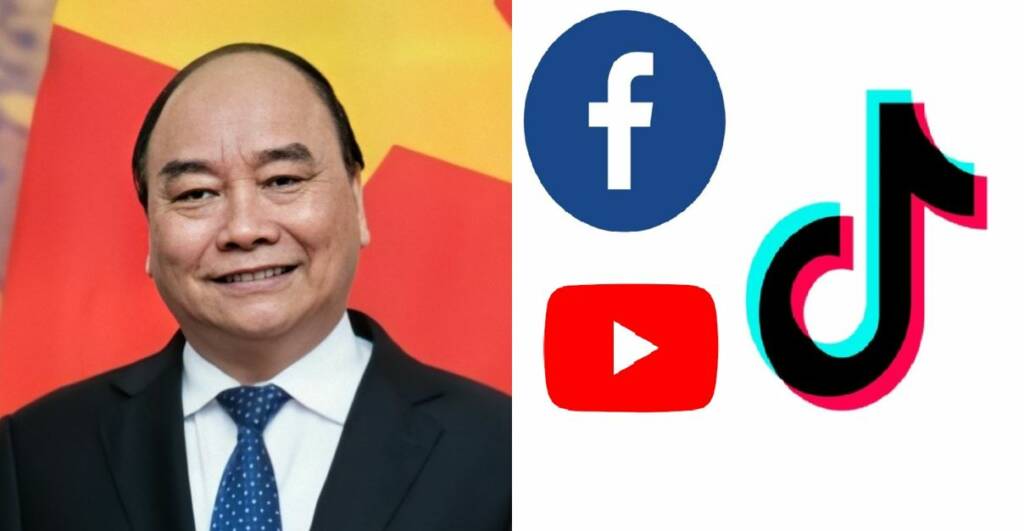In this era of globalisation and virtual interactions through social media replacing real-life interactions, the influence of Big Tech is beyond comprehension. After some very potent examples of how the American Big Tech can breach any country’s sovereignty and influence the domestic political narrative, countries are taking their capacities seriously. A while ago, India tweaked its IT regulations and successfully brought the big tech under its ambit, and now Vietnam too has begun choking them.
As per reports, Vietnam’s government is set to impose new regulations targeting popular live streaming content on social media, including Facebook, YouTube and TikTok, in its latest effort to crack down on internet content that it believes threatens stability in the country. These regulations which are about to be imposed in Vietnam look similar to the IT regulations imposed by India recently.
The preliminary decree proposed by the Ministry of Information and Communications earlier this month is due to go into force when Prime Minister Pham Minh Chinh gathers public feedback and signs it. According to the draught rule, “cross-border” social media platforms operating in Vietnam must furnish contact information on account holders who broadcast live streaming programmes with over 10,000 followers or subscribers.
According to the government, the top 10 Vietnamese social media platforms had a total of roughly 80 million subscribers as of the end of June. However, foreign players such as Facebook, which has 65 million users, YouTube, which has 60 million, and TikTok, which has 20 million, dominate the business.
Social media platforms will also be asked to block or remove flagged content on their platforms within 24 hours of receiving “justified” requests from individuals and organizations affected by such content. “Ministries, branches and localities are responsible for determining the infringing content, based on their management fields. They will report to the Ministry of Information and Communications. The ministry is in charge of requesting cross-border enterprises to handle and remove infringing information,” the ministry says.
Early this month, following a complaint from broadcast authorities in Vietnam regarding the display of a map depicting Chinese claims in the South China Sea, Netflix Inc has deleted the Australian spy drama “Pine Gap” from its services in the Southeast Asian country. The map illustrates China’s unilaterally announced “nine-dash line” and is exhibited in the context of maritime claims in the region. It appears briefly on the screens of a control room at a spy base in two episodes of the six-part show.
The Authority of Broadcasting and Electronic Information declared on its website that Netflix’s infringement “angered and hurt the feelings of the entire people of Vietnam.” “This is the third time in a row in the last 12 months that Netflix has been found to distribute movies and TV shows containing content which violate Vietnam’s sovereignty,” said the statement, which was dated July 1.
These steps become all the more pertinent because the big tech and big social media platforms seem to be willfully oblivious of the reservation of many countries regarding their practices and their involvement in propping up one political grouping against another.
The influence and power of Big tech were on full display in the US elections, helping the Democrats win the US Presidency. And when they found the opportunity, suddenly shut out a whole perspective from the US political discourse by banning Donald Trump. The same tech giants have been running free with their agendas in countries like India and Vietnam among others. Posting content that is bound to hurt the feelings of a major population, using tools such as shadow banning, flagging tweets as manipulative and temporary bans to control political opinions have been some of the methods utilized by these big tech companies and their platforms. With no regulatory framework to address the issue before, the big tech had roamed free.
However, the days of indulging in political manipulation, influencing the narrative for the patrons of big tech with impunity are numbered. Countries one after another are realising the extent of the damage that these big tech firms can cause and taking steps to bring them under the ambit of law, making them answerable. After India’s successful IT regulations against American Big Tech, Vietnam has also come up with new regulations and has begun choking them too.
